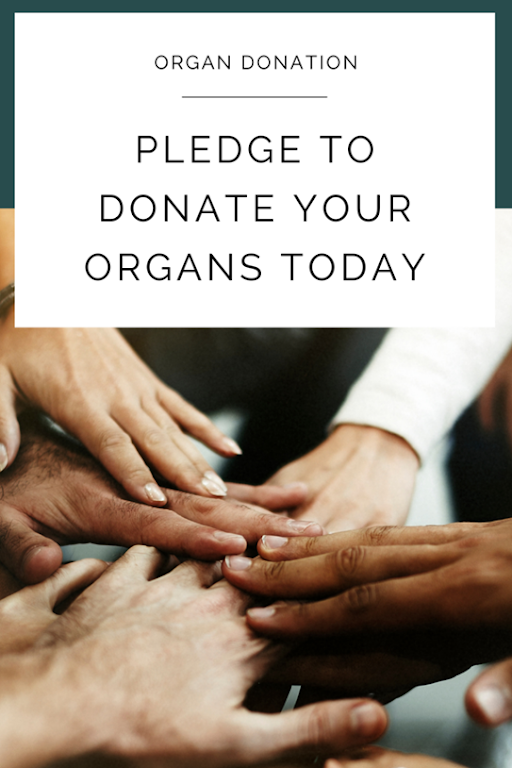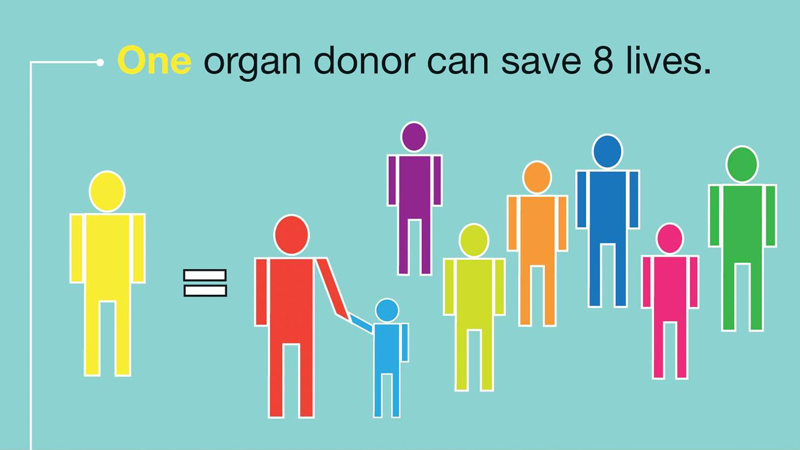Organ donation is a highly valuable tool in the arsenal of health care and it’s importance can never be over-emphasized. It ensures that a life lost will never be forgotten and their memory will live on forever.
As per the National Organ Transplant Programme by the Ministry of Health & Family Welfare, Government of India, there is an acute shortage of organs for donation in our country. Although this is a worldwide problem, the magnitude is much more severe in Asia.

What do the numbers say?
- Around 1.8 lakh people suffer from renal (kidney) failure every year.
- Only 6000 Renal transplants are done every year.
- Annually 2 Lakh patients die of liver failure or liver cancer in India.
- Only 10-15% of these patients can be saved with a liver transplant.
- In India annually 25,000-30,000 liver transplants are needed.
- Only 1,500 Liver Transplants are being performed.
- In our country, around 50000 people suffer from Heart failure every year.
- Only 10 to 15 heart transplants are performed every year in India.
- For Cornea, about 25000 transplants are done every year against a requirement of 1 lakh.
What is the need for awareness regarding Organ Donation?
At the moment, India has a deceased donation rate of 0.05-0.08/million population compared to rates of more than 20/million in prominent European countries. Due to this low donation rate, patients needing transplantation have to wait for a very long time.
- Organizing special events for Organ donation at schools, colleges, residential areas, etc.
- Utilizing print media to spread the word of awareness on the need for more organ donations.
- Collaborating with prominent City Doctors & urging the common people to become donors.
- Busting myths that surround Organ donation in India.

- Here are some must know facts about Organ Donation in India.
- Organs & tissues that can be donated are:
- Organs are the Heart, Kidneys, liver, lungs, intestines & pancreas.
- Tissues are Bones, Corneas, Heart valves, Skin, Ligaments & veins.
- NOTTO: National Organ and Tissue Transplant Organization
- The National Network division of NOTTO functions as an apex center for all Indian activities of coordination and networking for the procurement and distribution of organs and tissues. It also functions as the registry of Organs and Tissues Donation and Transplantation in our country.
- The Transplantation of Human Organs Act (THOA) 1994 was enacted to provide a system of removal, storage, and transplantation of human organs for therapeutic purposes. Also, for the deterence of commercial dealings in human organs.
- Under the Transplantation of Human Organs Act, Brain Stem death is recognized as a legal death in India, further facilitating Organ transplants.
- After a natural cardiac death, only a few organs or tissues can be donated (like cornea, bone, skin, and blood vessels). Whereas after brainiac stem death, almost 37 various organs and tissues can be donated, including vital organs such as heart, kidneys, liver, and lungs.
- Types of Organ Donation:
- Living Donation: Done when the donor is living & is willing to donate an organ/part of the organ to someone’s life. This person could be a relative, known, or friend of the organ recipient.
- Deceased Cadaver Donation: Done when the organ donor is declared dead. (brain stem death)
In the current healthcare scenario, a lot needs to be done to promote organ donation, not only from doctors but also from the general public & the media. Over the past few years, organ donation has received a lot of attention to motivate more people toward this cause. You can play your part in saving lives through Organ Donation because there is no bigger Donation than Organ Donation.know more about Organ Donation.

If you know a person in your family or circle who want to donate or at least interested to know about it help them to connect with the KD Hospital - Best super specialty hospital in Ahmedabad.
For further information or query please contact us!




